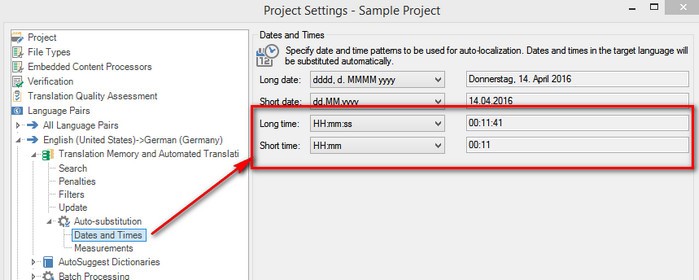Hello,
again I have the same problem as before when I try to reconvert a big XLIFF to Word, I get the error message "Sdl.FileTypeSupport.Framework.Adapter.Framework1.Writer". The last time it was due to a missing field tag, but I already checked all tags and cannot find the one that blocks. Could there be another reason why I cannot reconvert the file? The file was corrected in the correct mode and afterwards I accepted or rejected the changes...
Thanks for helping me out!
Susanne

 Translate
Translate

